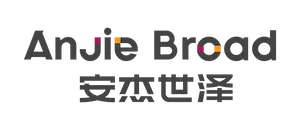In recent years, the term "standard essential patent" ("SEP") may have been a buzzword in the circle of anti-monopoly research in China. As the issue on SEPs relates to the application boundary of the anti-monopoly law, the balance between public and private rights, and the future direction of the enforcement and judicature of the Chinese anti-monopoly law, it is necessary to further discuss this issue.
In 2011, Huawei sued IDC, an American wireless manufacturer, at Guangdong and the National Development and Reform Commission ("NDRC") suspended its investigation on IDC afterwards; in 2013, the NDRC initiated an anti-monopoly investigation against Qualcomm Incorporated and made its penalty decision in early 2015; later that year, in October, the Ministry of Commerce ("MOFCOM") conditionally approved the case of Nokia's acquisition of Alcatel-Lucent. The above cases show that the question of "how to assess the SEP-related activities under the framework of China's anti-monopoly law" has not only attracted the attention of the administrative law-enforcement and judicial departments of anti-monopoly in China, but also caught the eye of many competitors in the relevant markets, especially those in the high-tech industry. Currently, the Anti-Monopoly Commission, which operates under the State Council, has taken the lead in formulating the Anti-monopoly Guidelines on the Abuse of Intellectual Property Rights, in the hope of providing more specific and targeted guidelines regarding the practice of anti-monopoly law enforcement, in which the issue on SEPs is one of the core contents.
It should be admitted that the anti-monopoly law enforcement and judicature in the field of intellectual property rights ("IPRs") is complicated; once combined with the "standard setting activities" which cover wider fields and have more complicated procedures, it will become more sensitive and challenging.
Where a relevant enterprise participates in the process of standard setting, it needs to spend a lot of human, material and financial resources on research and development, technical discussion, screening and evaluation, promotion and planning, and other activities. If its technology is eventually included in the standards and can be used in a wider area, then the enterprise can have its earlier investment recovered and even make considerable profits. If in the end, the technology is rejected by the standards, then the enterprise cannot recover the huge investment it made during the early stages. This makes the participation in standard setting activities to some extent commercially risky and not all enterprises have the capability and sufficient motivation to actively participate in standard setting activities. However, only if more enterprises are encouraged to engage in the standard setting process so as to cover as many competing technologies as possible for comparison and selection, can the best advanced technologies which benefit most consumers be included in the standards. Once practical and feasible standards are formed, they will help the entire industry improve the operational efficiency and the level of standardization. Therefore, under normal circumstances, due care and encouragement should be given to businesses in order to motivate them to actively engage in standard-setting activities.
However, we have also noticed that some patentees of SEPs abuse their rights and the market dominance brought by the indispensability of the SEPs, and thus the intervention by the Anti-monopoly Law is necessary under some extremely exceptional circumstances. Despite such indispensability, a reasonable balance should be sought between the protection of SEP holder's patent right and the regulation by the Anti-monopoly Law. The intervention by the Anti-monopoly Law regarding the relevant conduct of SEP holder must be cautious, and should not be in the form of law enforcement and administration of justice deviating from the reality of the markets and the specific competition situation on the relevant markets; otherwise, it will undermine the motivation of businesses to actively innovate and participate in standard setting activities.
In this article, we will first give more background information regarding standards, standardization organizations and SEPs; we will then go on to explain the anti-monopoly regulation system in China for SEP-related behaviors; finally, we will put forward our views on several important issues concerning the application of law, emphasizing that due prudence should be given in the anti-monopoly law enforcement and judicature with respect to SEP-related behaviors, and recommending businesses to conduct an assessment based on the specific competition conditions on the relevant markets and comprehensive consideration of various factors, including the special nature of patent licensing as well as strictly limiting the interpretation of SEPs to a proper extent. We hope our readers will get something from this article.
To continue reading this article, please click here.
The content of this article is intended to provide a general guide to the subject matter. Specialist advice should be sought about your specific circumstances.


